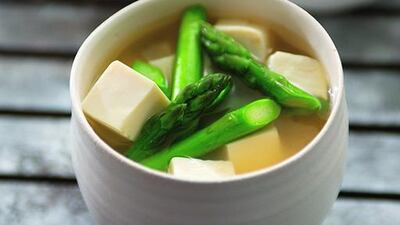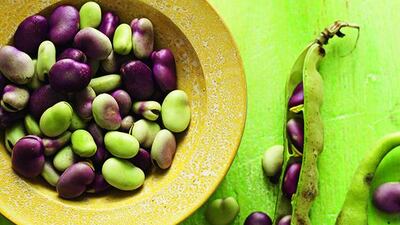There’s more to heart health than good luck and good genes. Lifestyle is a huge factor, and keeping active and eating the right foods is a large part of that. You may not be what you eat, but including adequate amounts of certain nutrients in your diet is one of the best ways to give your heart the love it deserves.
Dimitrios Spanos, registered dietitian and manager of clinical dietetics at Cleveland Clinic Abu Dhabi, says there is a growing impetus towards trying to eat healthy and nutritious home-cooked food more often, or making healthier choices when eating out.
“Various types of nutrients can help lower blood pressure and reduce cholesterol, in turn helping to reduce a person’s risk of cardiovascular disease,” he says. “Nutrients that help lower blood pressure include omega-3 [fatty] acids, antioxidants such as flavonoids, and potassium. As for lowering cholesterol, beneficial nutrients include fibre, lycopene and vitamin E.”
There are recommended foods you can eat to ensure you are getting all of these nutrients, he advises. For battling high blood pressure, the essential nutrients are in fish (mostly salmon, tuna, mackerel, herring and trout), unsalted nuts and seeds, berries, citrus fruits, soy products, legumes (such as peas, beans or lentils), broccoli and tomatoes. To help keep cholesterol levels in check, try to incorporate oatmeal, grapefruit and dark green leafy vegetables into your diet.
In terms of how much of these foods one should to eat, and in what quantities, Spanos says: “A person’s dietary requirements differ based on things like optimal weight and physical activity level.
“As a general rule of thumb, it is beneficial to consume fish at least twice a week (each portion equalling the size of your palm), half a handful of unsalted nuts a day and two cups of fruit with three cups of vegetables per day to load up on vitamins. For your suggested fibre intake, aim for 20 to 30 grams per day by eating more plant-based meals (lentils, beans and soy) and 90g of wholegrain foods every day.”
It can be hard to measure things by the cup or gram, but Spanos says there are foods that we should be avoiding. “Try to avoid foods high in saturated fat, like higher-fat cuts of meats, poultry with skin, full-fat dairy, too much butter and fried foods, because they raise cholesterol levels in the blood.
“Limit your salt to one teaspoon per day. Use spices and herbs instead and avoid processed foods that can be high in salt, such as canned products, and snacks, such as potato chips. Also try to limit your intake of foods with added sugar, such as soft drinks, sweets, and ice cream, since they deliver just calories without any health benefits.”
Fish, and salmon in particular, is great for keeping your heart healthy since it is a rich source of omega-3. Omega-3 lowers the risk of developing arrhythmia, which is an irregular heartbeat, and atherosclerosis, a condition caused by the build-up of plaque in the arteries.
Nuts, including almonds, walnuts, pistachios, peanuts and macadamia nuts, are all great sources of fibre and the type of fat that is good for your heart, as well as vitamin E, which helps lower bad cholesterol (LDL, or low-density lipoprotein, which can build up within the walls of your blood vessels, narrowing the passageways and leading to heart attack and stroke). Some nuts, such as walnuts, are also high in omega-3, but avoid those with a lot of added salt, and instead opt for the unsalted or dry-roasted variety.
Oranges, grapefruits and berries are some of the fruits that are high in antioxidants, fibre, potassium and vitamin C. These help protect cells, lower both blood pressure and cholesterol levels and ward off heart disease.
Soy products are a great way to add protein to your diet without the additional unhealthy fats and cholesterol. They are also rich in healthy fats, fibre, vitamins and minerals, helping lower levels of blood pressure and bad cholesterol.
Legumes, such as beans, lentils and peas, because they come from plants, are great sources of protein without unhealthy fat. They also help control cholesterol and blood sugar levels.
* Dimitrios Spanos, manager clinical dietitian, Cleveland Clinic Abu Dhabi




